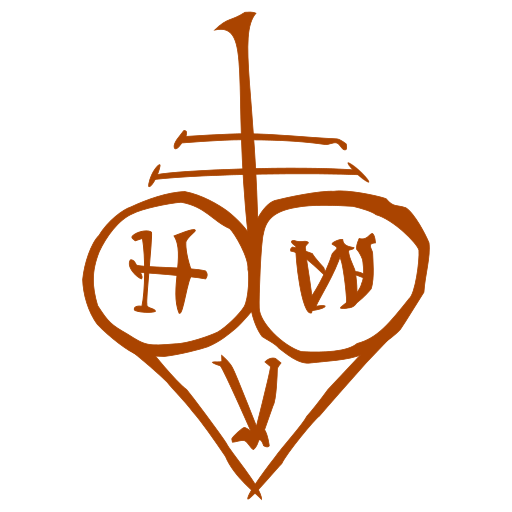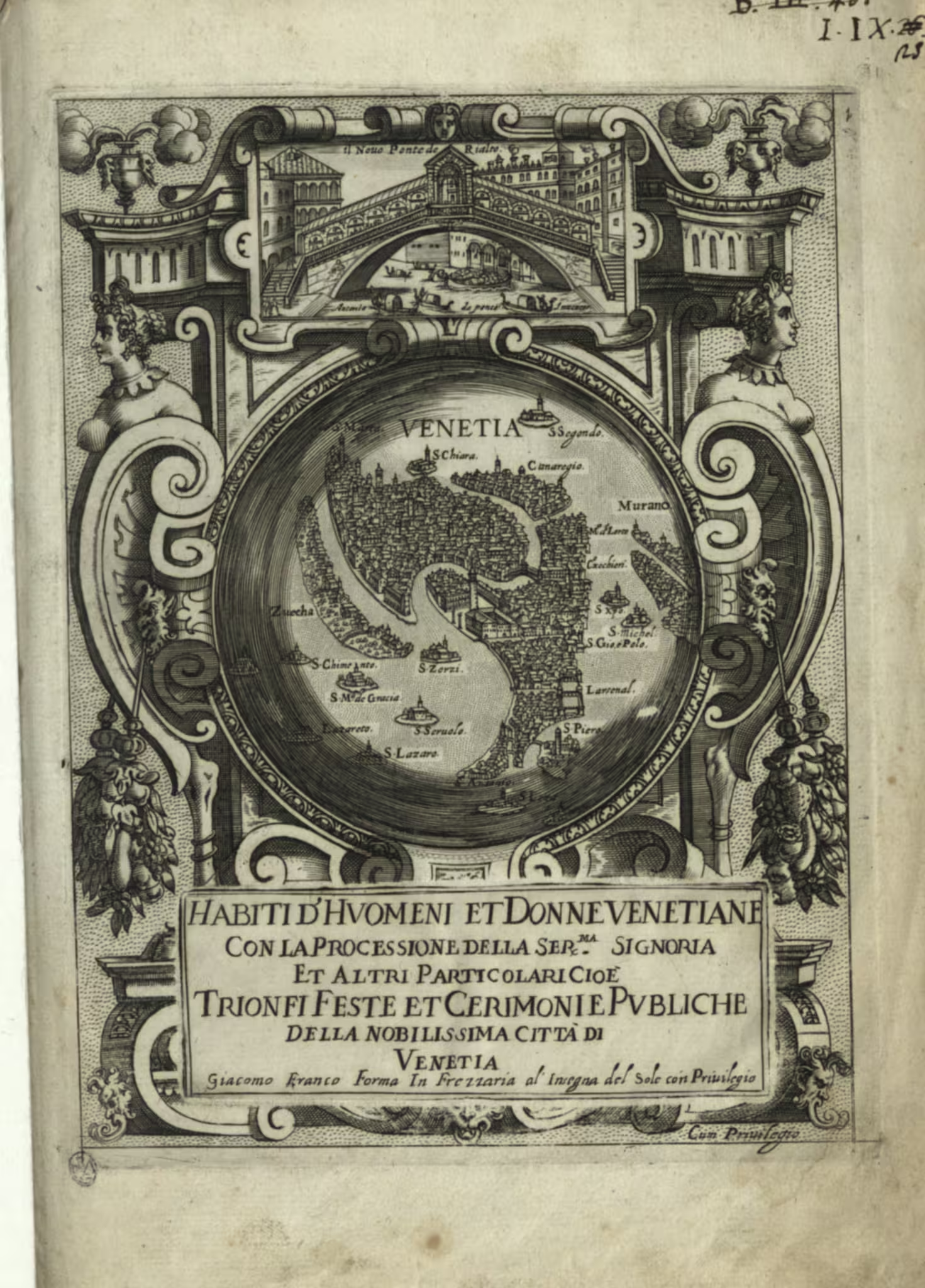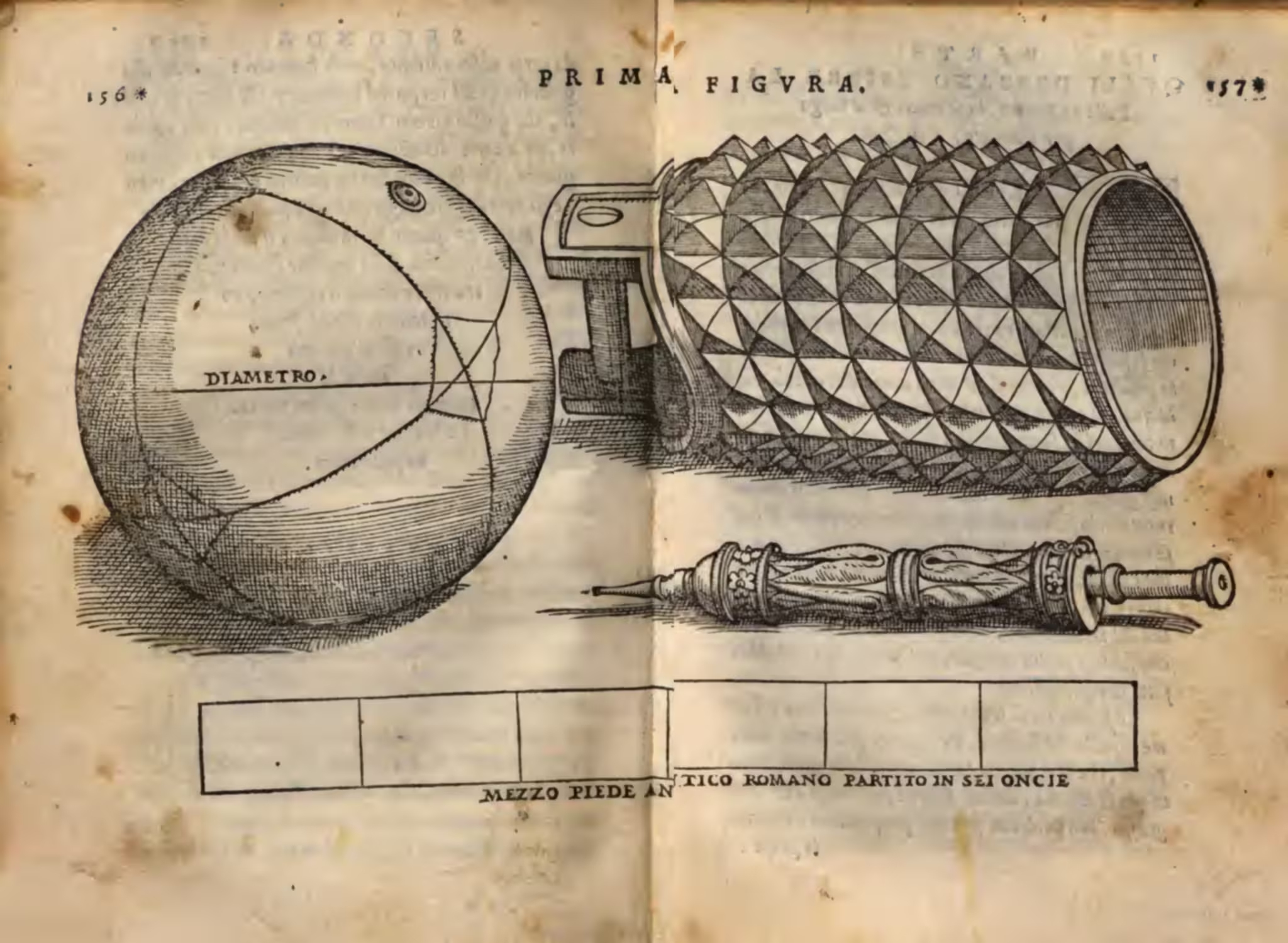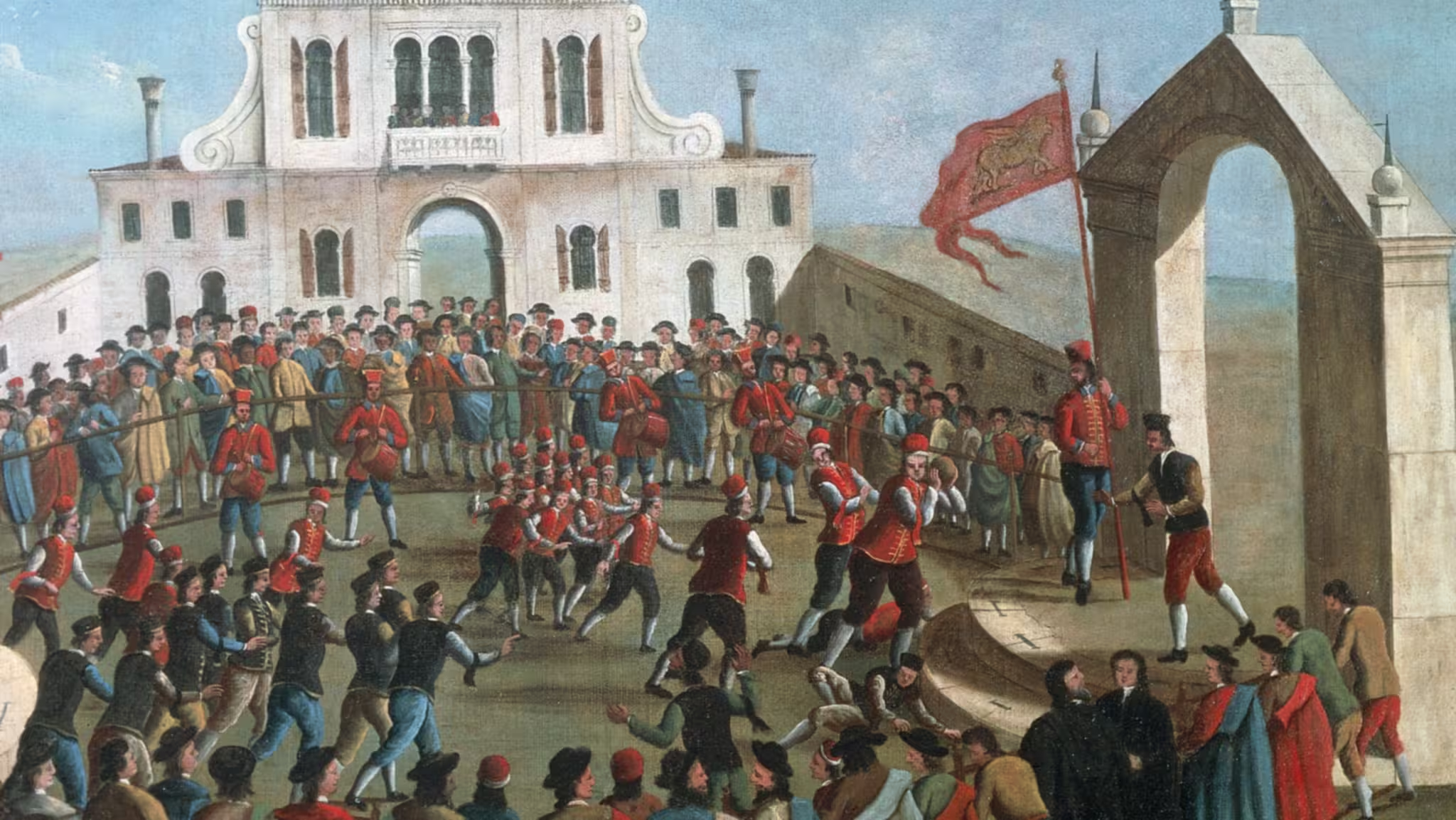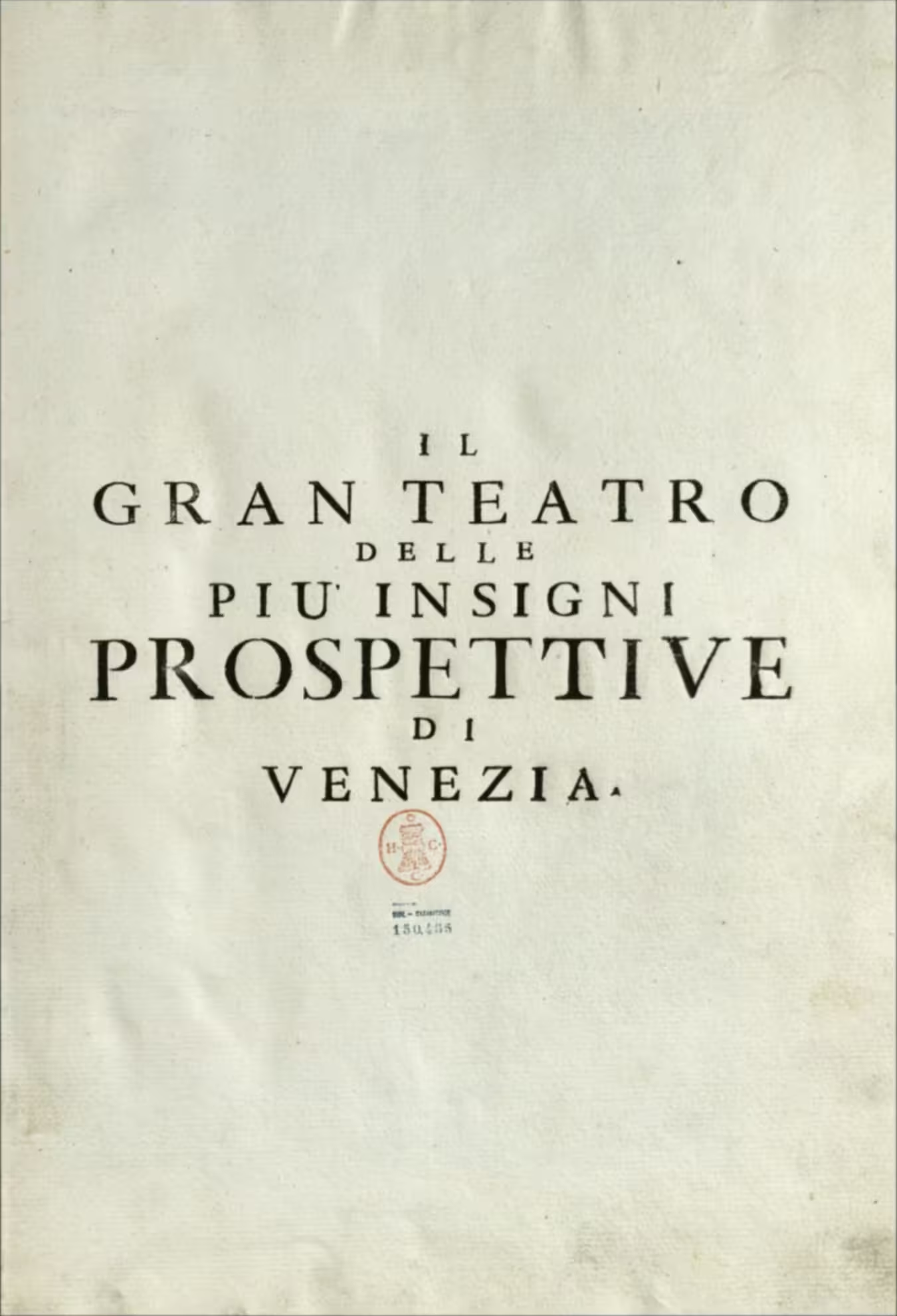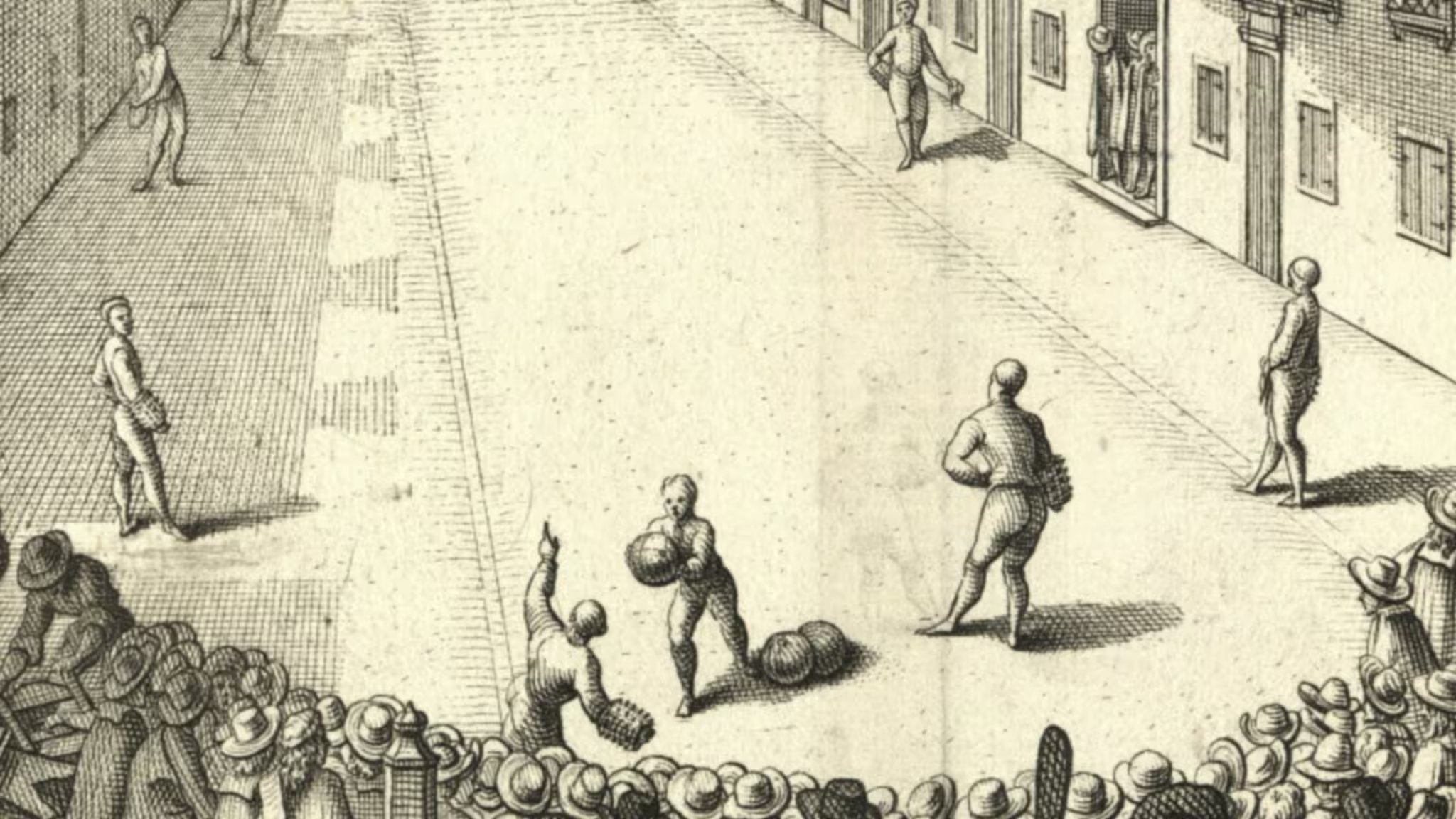Articles
-
Habiti d’huomeni et donne venetiane (1610) — Giacomo Franco
About forty engravings from the early 1600s, with dresses, attires, ceremonies, feasts, regattas and much more.
-
The game of Pallone
The “Game of Pallone” was the quintessential ball game in the Republic of Venice and elsewhere, but it wasn’t really like any modern game.
-
The game of Calcio
The Venetians played ball games of various kinds. The game of Calcio is the one sounds most modern, but it wasn’t exactly like it’s played today. Far from it, in fact.
-
Il Gran teatro di Venezia (1717) — Domenico Lovisa
The engravings published by Domenico Lovisa in the early 1700s are among the illustrations of Venice most often used in books and articles.
-
Ball games in Venice
The Venetians of yore played ball games for fun and sports. Some of these ball games were similar to modern sports, even if not excessively
-
Article index
A complete, hierarchical index of all the articles published on this site.
-
Jacopo Tiepolo — a chronology
A chronology of the main events in the life of Jacopo Tiepolo, doge 1229–1249.
-
Jacopo Tiepolo — the 43rd doge of Venice
Jacopo TIepolo, doge 1229–1249, left an impact on Venice, which is still clearly visible today.
